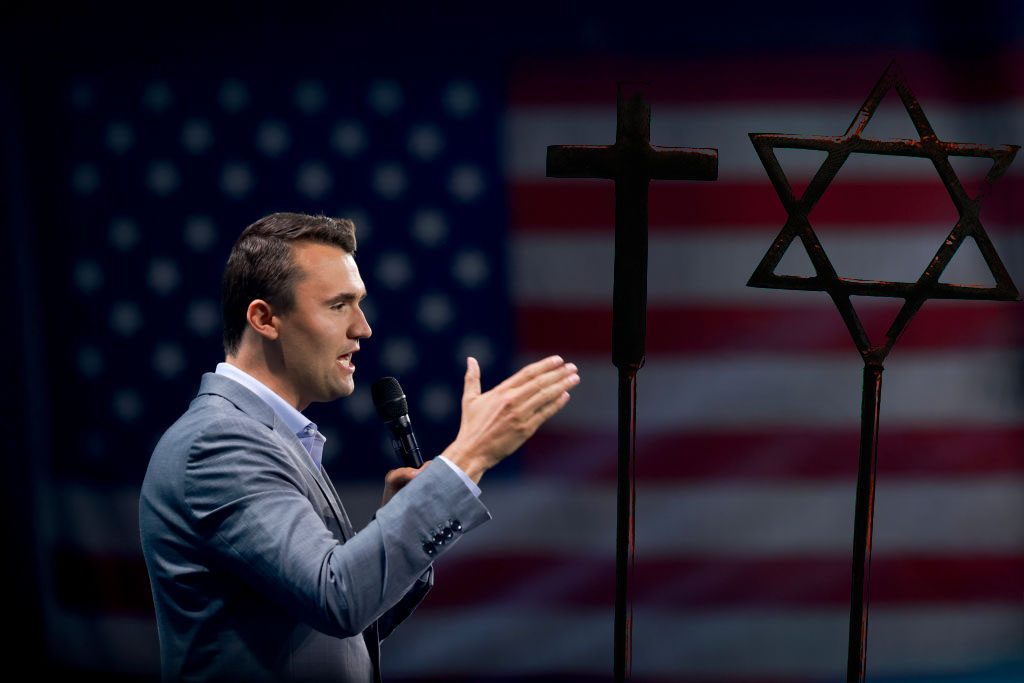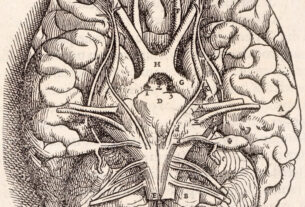In the aftermath of Charlie Kirk’s horrific assassination, I posted on social media, like many others, that I was shattered by his murder while he was speaking on a campus. Kirk was a hero of the young right with millions of followers, appearing at universities across the country to debate the issues.
I often disagreed with Kirk and winced at his sometimes harsh tone and by what I perceived as his religious zealotry, but I was struck by a recent interaction he had with a student who launched into a rant claiming that the Jewish Talmud was anti-Christian, alleging that it states “Jews are the chosen people and all non-Jews are Goyam [sic] here to serve them.”
Kirk would have none of it. He pushed back: “The Talmud is not one book. It’s thousands of rabbis arguing with each other over centuries.” The video went viral, at a moment when hostility toward Jews on the political right was becoming increasingly visible. I was grateful Kirk stood up and challenged it — not by silencing the student, but by responding with knowledge and argument. For Jews, who have seen the rise of antisemitism from both left and right, these moments matter. The shape Christian politics takes will directly affect us.
After I posted my thoughts online, a rabbi friend messaged me:
“On the subject of white Christian nationalism — that’s who Charlie Kirk was. I’m horrified by what happened but I’m not bringing rugelach to shiva. He was not our friend.”
That reaction gets at something I hear often in liberal Jewish circles: denunciations of “Christian nationalism,” usually without much nuance or understanding of what the term covers. Is all Christian nationalism the same? Was Kirk really advocating for the overthrow of our democracy and Constitution in favor of a biblical, theocratic state straight out of “The Handmaid’s Tale”?
There are, of course, such extreme expressions of Christian nationalism on the American scene. The New Apostolic Reformation movement, for example, teaches that Christians are called to take control of seven key spheres of society — religion, family, education, government, media, arts and business — to bring the world under biblical principles before Christ’s return. That is radical theocracy.
The day after Kirk’s murder, I called my friend Christopher Schorr at the America First Policy Institute for perspective. A Christian thinker himself, Schorr has helped me interpret the Christian political landscape before. He told me that much of what we label “Christian nationalism” is really the continuation of 1980s Christian conservatism: opposition to abortion, advocacy for school prayer, and a desire to reinforce traditional moral values.
Today, many who identify as Christian nationalists are not seeking to overthrow the Constitution. Instead, they argue that for democratic society to endure — and not collapse into chaos — it needs a moral core and social constraints to guide how people use their freedoms.
This may sound scary to Jewish liberal ears, but Jonathan Rauch, a Brookings fellow and a self-described gay, atheist Jew, who was a leading voice in the same sex marriage movement, makes a strikingly similar point in his recent book “Cross Purposes”:
“I came to realize that in American civic life, Christianity is a load-bearing wall. When it buckles, all the institutions around it come under stress, and some of them buckle, too.”
Rauch describes the liberal tradition — dating back to the seventeenth century — that grounds ethics in the idea that all humans are created free and equal, politics in the idea that sovereignty resides with the people and governments rule by consent, and authority in the idea that everyone follows the same rules and enjoys the same rights. Rauch believes this liberal tradition flourishes only when supported by a robust Christian moral system.
And as American society becomes less religious and more secular, that moral system has begun to falter, generating more and more social chaos. When religion recedes, it’s not replaced by secular rationalism, but by other dogmas, especially radical identity politics, that offer no unifying vision and are less calibrated to democratic life than traditional religion. We have seen young people, devoid of a strong moral core and addicted to their smartphones, lapse into a mental health crisis and increasingly radical politics with little respect for the American idea.
When religion recedes, it’s not replaced by secular rationalism, but by other dogmas, especially radical identity politics, that offer no unifying vision and are less calibrated to democratic life than traditional religion. We have seen young people, devoid of a strong moral core and addicted to their smartphones, lapse into a mental health crisis and increasingly radical politics with little respect for the American idea.
The American experiment — and, by extension, American Jews — needs Christians to be better Christians.
Of course, Rauch would not argue that Kirk’s brand of Christian politics embodies the perfect balance between liberal values and religious moral attitudes. On the contrary, I have no doubt Rauch would say that Kirk often took things too far — and that if Kirk’s politics were to prevail fully, our system would become distorted in the opposite direction.
But Rauch’s larger point remains: the American experiment depends on a moral framework, and Christianity has long provided that load-bearing support.
When you get past his sometimes heated rhetoric, Kirk’s brand of Christian nationalism actually takes our liberal tradition seriously by advancing his views of a Christian society through persuasion. His project was to buttress our republic with a Judeo-Christian belief system — but he did so by showing up, making arguments, and trying to convince, not coerce.
New York Times columnist Ezra Klein, no admirer of the right, recognized this quality in Kirk:
“You can dislike much of what Kirk believed, and the following statement is still true: Kirk was practicing politics in exactly the right way. He was showing up to campuses and talking with anyone who would talk to him. He was one of the era’s most effective practitioners of persuasion.”
Kirk was not trying to impose a worldview by fiat; he was engaging opponents, fielding tough questions, and persuading through argument. In a time when public debate is often replaced by hot takes and social media snark, Kirk embodied an older, liberal ideal of contesting ideas in the open and letting persuasion do the work.
I don’t want Kirk’s vision of American society to win out in its fullness. But we ought to want Kirk’s vision of society to win out within the Christian nationalist movement because his philo-semitic theology will keep antisemitic voices at bay and his approach to open dialogue will ground Christian politics more in persuasion than in hostility. For Jews, that is no small matter. The question is not whether Christian nationalism will exist, but what form it takes. And we have every reason to prefer Charlie Kirk’s form that argues rather than one that coerces. May that be his legacy.
David Bernstein is the Founder and CEO of the North American Values Institute (NAVI).




